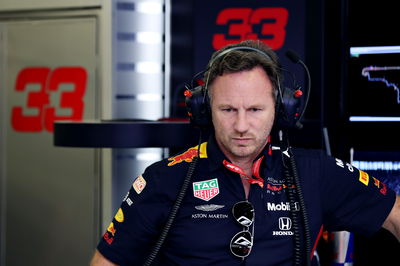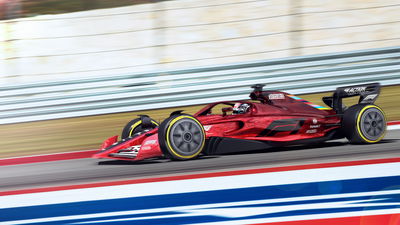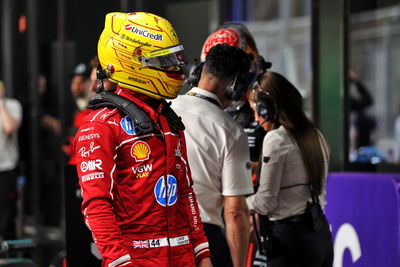Horner predicts “expensive” 2020 before F1 cost cap introduction
Red Bull chief Christian Horner is predicting a “really expensive” 2020 before Formula 1’s budget cap is implemented for the following season.
Along with an overhaul to the technical and sporting regulations for 2021, F1 is set to introduce a cost cap to limit spending with the ultimate aim of bringing the field closer together and making the championship more competitive.
A $175m budget will be phased in over a three-year period but will not come into full force until 2021, something Horner believes will result in teams incurring large development bills throughout 2020.

Red Bull chief Christian Horner is predicting a “really expensive” 2020 before Formula 1’s budget cap is implemented for the following season.
Along with an overhaul to the technical and sporting regulations for 2021, F1 is set to introduce a cost cap to limit spending with the ultimate aim of bringing the field closer together and making the championship more competitive.
A $175m budget will be phased in over a three-year period but will not come into full force until 2021, something Horner believes will result in teams incurring large development bills throughout 2020.
“There are bits of it that we don’t think will address the problems that they’re hoping to achieve,” Horner told Sky.
“We’ve obviously got the budget cap as well, so there’s a financial cap.
“My preference would have been to delay the introduction of these years to ’22, take a bit more time to evolve the concept, and then not have all the development costs next year which is uncapped.
“So we’ve got a really expensive year before that regulation change comes in.”
Despite his reservations over the financial regulations, Horner is generally pleased with the direction F1 is heading post-2020.
“I think the car, I think there are things that are good. The principle is good. It’s immature in its concept,” he explained.
“If the objectives of this higher wake allow the cars to follow, then that’s great. It’s still quite immature in design.
“I think there’ll be a lot of technical clarifications over the next 12 months, because it’s quite a big removal from where we are here.
“It’s something now for all the engineers to get their teeth into, and I’m sure teams will split their time between 2020 which is an evolution of this car, and then the all-new car for 2021.
“The principle of what they’re trying to do is absolutely right, and it’s important now that we try and work collectively for whatever areas that do need a bit of tidying up that we work together to achieve that for the benefit of the sport.”












